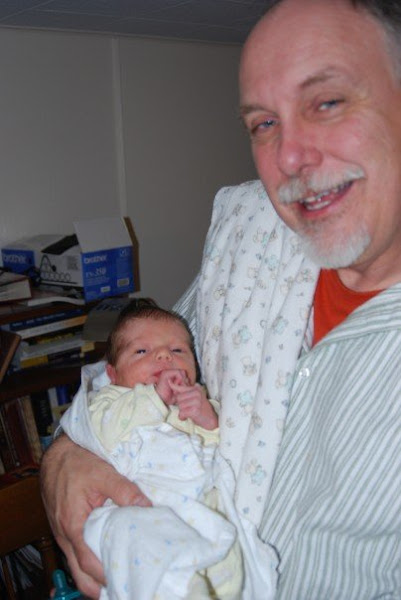I've been going on an intellectual nostalgia kick and rereading some of the books on medieval studies that I used as an undergrad. This includes what I think is still the best all-round introduction to the Middle Ages (in spite of being a bit dated), Medieval History by Norman Cantor. I know, I know, spending your summer vacation reading medieval history qualifies you as a super-geek, but what can I say?
It has also confirmed for me the truth of the old adage, attributed to Oscar Wilde, that education is largely wasted on the young. Because there was no way as a deer-caught-in-the-headlights undergrad that I was in any position to appreciate the correspondences between the 12th and 13th centuries and our own time.
Anyway, here's a bit from Cantor that got my thoughts going:
"The fault of the twelfth-century papacy was not that it permitted monstrous scandals with impunity, but rather that it did not adjust with sufficient rapidity and energy to the consequences of far-reaching social change. The church at the end of the twelfth century was still primarily organized for rural society, and its attempts to satisfy the religious needs of the urbanized areas of Europe were halfhearted at best and perfunctory at worst. This situation left the bourgeois, particularly in the numerous and wealthy cities in northern Italy and southern France, to work out their own resolution of their religious problems. They wanted a faith which could provide an intense emotional experience ... THey had contributed to the building of magnificent municipal cathedrals all over Europe because they wanted a place to worship where they could feel a close assocation with the divine spirit. But a great many of the priests who worked in urban areas could not or would not pursue this intensely personal approach to the Christian faith." (pp. 414-415)
Man, is this like today, or what? Many people argue that mainline churches are in decline because they are morally and spiritually bankrupt. Among these are religious conservatives who think that gay-loving United Church folk have lost Jesus, and hard-headed devotees of scientism who think that any religious faith at all is a sin against the morality of rationality.
But I think it's got a whole lot more to do with being stuck in a rut and not knowing how to get out of it. Everybody knows that social patterns have changed immensely in the last 50 years. There are a few turning points. TV was one. It gave birth to the culture of endless entertainmnet choices available at every hour of the day and night. And wide open Sundays were the other. They came to Ontario in 1995, and no single social change has had such a huge impact on churches.
Oh, I know, there are those who want to trace the decline to the Enlightenment or Darwin, but the fact is that churches were an integral part of social, community and family life as recently as the 1960s, but now are little more than marginal. And I think that's largely because we, as church leaders, act like we know we're living in 2007 for 167 hours a week, but then for the 168th behave like it's still 1957.
There's no question in my mind that people want what the church could be offering. My survey shows that they want help in being better people, some respite from the overwhelming pressures of life, someone to tell them that they're not alone, someone to show them the way to find inner peace, a cause to believe in, help with their troubled relationships. And what do we give them? Lectures on inclusive language or sexual politics. A chance to join the property committee, or help out at the bake sale. As Kennon Callahan said, people come to the church looking for community and we give them committee instead.
I'm so enculturated to the modern form in which the church appeared during the last century, and I'm so dependent on the lingering shadows of that kind of church for my pay cheque, that I'm not even sure what things would look like if we did come to grips with the changes in people's lives around us. In that regard, we're pretty much one with our ecclesiastical brethren (OK, they were all brethren) back in the 1100 and 1200s. The world has changed. People's spiritual hungers have changed. And we're busy trying to run the church as if nothing had changed.
What was it Santayana was supposed to have said: Those who ignore history are doomed to repeat it?
Tuesday, September 11, 2007
Subscribe to:
Post Comments (Atom)


1 comment:
The latest comments were very helpful. My wife and I have just returned from a wonderful 12 day tour of Europe. On Sunday, we stood in St. Peter's Square. The buildings are awesome, but after we saw the prices in surroundong shops and food stands, I commented to our friend that it made me think of Jesus and the money changers!
We visited Ephesus and Athens, and were shown the sites where St. Paul spoke - both outdoor sites! Then we saw cathedrals and mosques with their elaborate decorations. Do we really need all that to worship? So much of what is done there is ritual. Is that what is turning the younger generation off?
Post a Comment